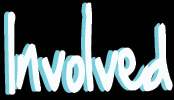"Either write something worth reading, or do something worth writing about."
I'm a SMAD major with a concentration in journalism.
My first blog began in my SMAD 322, New Media Journalism, class, and is entitled, "Did You Hear?". It focuses on different headlines throughout each week.
COMING SOON: My London blog!
Articles from The Breeze, JMU's Student Run Newspaper:
- Third Eye Blind
- "A 'Low Key' to A Capella Auditions"
- A Haunting in Harrisonburg
- French Class
The No. 1 album on iTunes this August is headed to JMU this fall. Third Eye Blind will be the long-awaited artist for this semester's performance.
The band released their new album, Ursa Major, on Aug. 17 and have received nothing but positive and upbeat feedback since. The album, which fans have been anticipating for six years, includes singles such as, "Bonfire" and "Don't Believe a Word."
So, how did JMU manage to get the band to come? This summer, the University Program Board (UPB) sent out an e-mail survey to JMU students asking them which artists they would like to see perform this October. The survey was split into different genres, such as rock, rap, country and comedy. Each category had about five different artists, and students would rank their top choices in each category. Fortunately, the student's overall first choice for the concert is what they will see. Stephen Eure, the public relations director for UPB, said that, "The results were overwhelming. Third Eye Blind was the obvious winner."
The next step was figuring out if the band was available and able to travel to JMU. With regard as to how JMU students will react to the news of the concert, he says that, "We are hoping that the students will be really excited and love this year's performance. It was the top choice, so we're expecting a great turnout." Erik Bowen, the creative director for UPB thinks that, "It is going to be such a great concert. I'm really excited for it." Last year, JMU hosted nationally-known artists Girl Talk, Three 6 Mafia and Boys Like Girls. With the band back on top, UPB is ecstatic about hosting them. Zach Hampy, the vice president of marketing for UPB, believes, "That students here will show a lot of energy and enthusiasm about the concert."
Hamby says that, "This is the most expensive show that JMU has hosted so far." Take a listen on iTunes and check out their new album. According to Angela Morton, the director of Center Stage, the section of UPB that bring major artists to the campus, students can buy their tickets with their JACard for $26, and the general public can buy the tickets without a JACard for $31. The concert is scheduled to be on Thursday, Oct. 8. Tickets go on sale at 8:00 a.m. on Sept. 17 and can be bought at Warren Hall or online at www.upb.jmu.edu.
Mark your calendars, get your tickets & have a majorly fun time.
The hallways of Music Hall on Tuesday night were full of snacks, iPods, Sudoku, chemistry note cards and singing. At first glance you'd never have thought it was the night of JMU's a-cappella group auditions.
Students filled the hallways, ranging from people auditioning, to group members, to friends there for moral support. JMU has seven a-cappella groups— Into Hymn, Madison Project, Low Key, Exit 245, Bluestones, Overtones and Note-Oriety.
Low Key, one of the two co-ed a-cappella groups, currently has 13 members. Lauren Bunch, a second year freshman and an IDLS major says about the group, "They definitely do not lack energy."
When asked about the impression Low Key gives off to the JMU community, Kevin Collins, a junior theatre major, responded, "I mean, we're just a fun loving bunch of kids."
Cali Lull, a freshman nursing major, said, "I met a few of the members on campus and they were really encouraging about auditioning. I want to join them because of how fun they make it look, and also the variety of having a co-ed group with personalities and voice ranges."
Durrell Lewis, a senior mathematics major, came out of his audition for Low Key and said with a sigh "Man, I still have the butterflies. That song is like mush to me. But I sang from my heart and forgot about the nervousness, which is fine, it does my voice justice."
Bunch added, "Wow, I'd be afraid to pick a song like that because I would just bust out crying."
One of the main reasons Low Key is so attractive to students auditioning is that they don't require sight-reading.
Bunch said, "It would add so much to my nerves, not knowing what I would have to sing until the moment I had to do it. That would be so nerve-wracking."
Despite his nerves, the atmosphere was, to say the least, very 'low key.' Members Kevin Collins and Amy Pasquarello, a sophomore communication studies major, hung out in the hallway, met new people and even taught beat boxing for those who were interested. Always wanted to learn? Try it sometime; boots-and-skirts, and don't pronounce the vowels.
The auditions began on Tuesday night, with groups such as Low Key having an estimated 150 people signed up. Students could audition for as many groups as they wanted to with no experience necessary. The executive board members for Low Key were the only ones who watched the first round of auditions, and they include RJ Ohgren, a senior and the president of Low Key; Erin Higgins, a junior and the assistant music director; and Mike Smith, a senior and business manager for Low Key.
Mike Smith did not hesitate when asked about the auditions. "Can I be blunt? We're looking for their ability, their voice, personality, and willingness to learn."
The auditions were not based on purely talent. If called back to become a member of a group, they essentially become your family. Collins joined Low Key his freshman year in the spring semester, and said, "I'm having the time of my life. It's not all just about singing, it's about bonding and having your best friends around."
Practices for Low Key run about three practices a week, for two hours each time. The group performs about one hundred times a month, ranging from small events for campus organizations to big events involving all a-cappella groups at JMU. All of the a-cappella groups generally perform the same amount per semester.
Member Erin Kwiatkoski, a junior psychology and Spanish major, said she was drawn to Low Key for several reasons. "The people are definitely the first reason. Our song selections, the flexibility of going either alto or soprano and the leadership opportunities are also really great."
Leadership positions in a-cappella groups include President, Music Director, Assistant Music Director, Business Manager, and Treasurer.
Auditions drew students from all walks of life. Lull sang in high school advanced show choir, and had different expectations about the auditions.
"I thought it wouldn't be that bad because of my experience," Lull said, "But my knees started shaking and my nerves just got to me. I messed up, but I still have confidence."
Jordan Tignor is a sophomore History major and auditioned for the groups last year. Her secret for getting rid of nerves? "Just stare at the wall right above their heads," Tignor said, "It looks like you're looking at them but can still keep your focus on your performance. If I don't make it it's not the end of the world. There's always next semester."
The shortest song Kwiatkoski's ever learned was in one afternoon, but Low Key is currently working on learning an Usher song, "U Make Me Wanna."
She said, "This is really complicated, trying to balance out all of the different vocals and parts to make the song work, but because of that I think it's going to sound the best."
A-cappella groups at JMU hold auditions in both the fall and spring semesters. You can find them basically anywhere; TDU, the Commons, and at most events that organizations host.
Low Key will keep up their fun and outgoing scheme throughout the semester, so keep your eye out for them.
To all of the a-cappella groups and students that auditioned this week, we hope your experience ended on a good note.
The guests staying at the Joshua Wilton House Inn and Restaurant know the rules; no children allowed to stay overnight. So why are there sounds of kids playing in the hallways past midnight? The Haunted Harrisonburg Tour allows participants to explore some of downtown’s unanswered mysteries.
With tour groups sold out hours beforehand, guide Lisa Ha leads spectators around some of Harrisonburg’s most “haunted” buildings.
The tour showcased more than 10 buildings, including the Joshua Wilton House Inn and Restaurant, the Municipal Building, the Hardesty-Higgins House and the Virginia Quilt Museum.
JMU was not left out of the tour, as one ghost reportedly sighted is JMU’s very own Dr. Duke.
The tour is not meant to be scary, just a collection of ghost stories shared with Ha over the years. They include stories of children playing in the night in places where they’re not allowed, men dressed up in civil war battle attire, bed sheets being pulled off, random people disappearing and much more.
Charles Keaton, a senior Writing, Rhetoric & Technical Communications major, said, “Some of the stories weren’t as riveting as others. It [the tour] was definitely interesting, I’m just more into proof of these kinds of things and would’ve liked to go inside and seen something.”
Pam Driskell an ‘09 JMU grad said, “It’s nice, because I don’t usually get to walk around downtown like this. I really liked the tour; it’s pretty cool because it’s close to Halloween and it gets you in the mood.”
Ha has been giving these tours for four years. She spoke of a particular story which initially inspired her.
A local family owned a store that had been opened by their parents years before. After deciding to move the store to a different location, they cleared the building of everything they could find, leaving it completely bare. An employee then approached them, asking if they had meant to leave a perfume bottle in the bathroom. Turns out, that bottle of perfume was their mother’s favorite scent, and they took it as a sign of approval to move the store.
“Once people heard about what I was doing, they would say, ‘Oh hey, well listen to what’s been happening in our building over the last year,’ ” Ha said. “I had to do very little research, because so many people came up to me with their own stories.”
The tours run until Halloween night, and more information can be found online:
www.downtownharrisonburg.org.
Just in case you've ever wanted to learn French, Spanish or Portuguese, the Office of International Programs at JMU is offering it this week; International Week.
Dr. Corbin is a French and Italian professor at JMU and has been teaching these classes during International week for four years.
"It's a relatively new program. They offer it just in case students took, say, Spanish in high school and want to fulfill their foreign language requirement with a different language. They can come to these classes to see if it's what they're really interested in."
Dr. Corbin walked into the room with a walker and a cast on his right leg, instantaneously joking about it. He got into a Vespa scooter accident about five weeks ago and hasn't been able to drive or do any tasks independently. He joked to students, "If you see me walking on 81, be nice and pick me up! 'Cause I can't drive myself."
This attitude and low-key atmosphere was transferred into the rest of the class, including teaching us the French version of "Ninety-nine beers on the wall" and his stories of traveling throughout Europe and visits to France.
His wife teaches Russian at JMU, so he says, "Language is a huge part of our life."
When asked about why these classes were inputted into the International Week schedule, he said, "It's simply to get a sense of different cultures and languages, and to just check it out."
The introduction courses provide basic information about the languages, including popular sayings, useful terms and regular verbs that could come in handy if needed. The classes are also wellness passport events. The majority of students that attended were there to fulfill a passport assignment.
Victoria Dever, a freshman Psychology major, went to the class for her passport event and for personal interest. She plans on studying abroad in France, so wanted to see if she wants to take it later on.
After the event, she claimed, "It was actually a lot of fun! It was definitely different than what I expected."
Dr. Corbin explained that a lot of people get turned away from the French language because of the hard pronunciations and "nasal" sounds. However, once you learn it, you sound very impressive.
The classes will continue this week along with other events scheduled for International Week, and you can find the schedule on line or on the Commons.
Au revoir mes amis!
(Goodbye my friends)
- "I Know I'm Not Alone"
- What's Your Gay Point Avergae?
JMU is an ideal location for ghost hunting, according to Shirley Lea Foley, a housekeeper at JMU and part time ghost hunter.
Foley’s reasoning for going into ghost hunting was simple. “I just want validation.”
She has worked at JMU for eight and a half years, and has heard multiple stories from students, staff and police claiming ghost sightings at JMU over the years.
“I’m old enough to be your grandmother,” she said. “Actually, I’m probably older than your grandmother. Either way, I have been here long enough to have a sixth sense about people and can tell when they’re exaggerating,” or not.
Foley claims that her sixth sense allows her to distinguish the real accounts from imaginary ones.
Accounts of these experiences include, “TVs moving from the shelf to the floor overnight, girls disappearing as they walk across the street, paper shuffling in buildings where no one else is occupying it, shadows where there could not have been people’s shadows,” she said.
The most common report is of a young couple that go to a study lounge but disappear on the way.
She said, “There is no basis or fact about this, just stories.”
“I know that 80 to 90 percent of what I’ve seen has been this beautiful imagination. I know about bad wiring, pipes, animals that can throw us off. But there have been times where I know I’m not alone.”
Investigating JMU’s buildings is one of Foley’s goals. “JMU has a lot of legends that cannot be validated until we perform investigations.”
She wants to gather a group of students one night, because she needs the students for confirmation and building access.
Molly Delayney, a freshman art history major, said, “I believe in ghosts, but not ghost hunters. Same with aliens. I don’t know why, but people are just crazy.”
On the other hand, InJeel Owens El-Ji, a sophomore psychology major, disagrees. “That would be awesome! Any way to get out of school. No, but really, I mean, everything around here is named after a dead person! They’d find something.”
Foley has heard reports of sightings at Duke Hall in particular, and she wants to get in before its upcoming remodel.
“The remodel could either take all of the spirits away completely, or it might shake them up,” Foley said.
Foley has worked in different buildings over the years, including the Bluestones dorms, Memorial Hall, Hillside and Eagle Hall.
“You want to hear some scary stories? I’ll tell you about Eagle Hall’s boy’s bathrooms on a Monday morning. My stories aren’t scary. You’re not going to have ghosts coming out and chasing you down the hall,” Foley said.
So, what actually happens during these investigations?
Investigations begin with interviewing people who told stories and accounts of the building, then setting up different cameras and video tapes. Finally, Foley walks around for a few hours in the dark just “talking to [herself].”
The longest part of the process is reviewing evidence afterwards. Foley has to be constantly alert for hours, and while observing footage from many different cameras and angles.
One of Foley’s clearest ghost hunting experiences was when she was going through footage and heard an EVP, or electronic voice phenomenon. She was the only one in the off-campus building conducting the investigation, and when she played back the tape, a clear, male voice spoke into the tape recorder. It was in the middle of the investigation and not something that was previously recorded.
“I just want validation and to confirm that I’m not going senile!” she jokes. “I’m a kook. To me, this stuff is interesting.”
Foley has gone on hunts with local groups and found one she considers reputable; Supernatural Investigators of Virginia, a group located in Harrisonburg.
She likes them the best because, “They will actually admit when there is nothing there.”
When Foley went on a tour with them, they met in front of Carrier Library and spoke about previous experiences they had with ghost hunting.
She joked, “My head was so big after that. I was surprised I could put on my shirt the next day.”
“I would question how many ghosts she’d seen before, ” said Sarah Elliot, a sophomore art major. “I mean, I’ve been on a ghost hunt before, I think it’d definitely be creepy, but I’d go.”
Foley isn’t alone in her quest for the truth. The University Program Board is hosting its very own ghost hunter Oct. 28. Tom Durant is from Power Performers and will give a presentation in Festival, followed by an investigation of paranormal activity on JMU's campus.
Foley has a book coming out this spring, which will be a compilation of many first-hand stories from ghost hunting around JMU’s campus. Her goal is to get the JMU student body more involved and interested in ghost hunting.
With humor in hand and rainbows boas wrapped around their necks, six students stood in front of almost 100 people during Tuesday night’s program What’s Your Gay Point Average?
Brought in by LGBT and Madison Equality, Shane Windmeyer was giving the audience a test they didn’t expect right before finals.
Windmeyer encouraged the students, “Put on your boas! Sometimes people need some gay energy to boost them up.”
What’s Your Gay Point Average? Is a game that Windmeyer claims he made up on a plane. It’s essentially an icebreaker to the rest of his program, raising awareness of diversity in our community in a light-hearted fashion.
“Are there any straight people in here?” he asked randomly choosing three boys and three girls to be the contestants of the game.
Most students that filled the Festival Ballroom had the class-required Wellness Passport forms in their hands, but Windmeyer gave them a reason to care about his message.
“Sooner or later you’ll all be in the workforce and these issues will apply to you, either with your boss or your coworker and definitely your customer,” said Windmeyer. “Your job will be impacted, whether you like it or not.”
The faux game show asked students four questions regarding LGBT: What are the colors of the gay flag? What geometric shape is the symbol that represents the gay community? Who created the scale that looks at sexuality (0 to 6, from straight to gay)? Finally, name three television or movie characters who are gay actually or play a gay character.
“I really liked that he put straight people on the spot, but lightheartedly,” said Gemma Hobbs, a junior dietetics major.
The game ended with a bonus question of who could perform the best “Z snap” as displayed and made famous in the media, creating the comfortable environment but also raising a stereotypical awareness.
Reviewing each of the answers led to the exposure of facts and history about the gay community that many people did not seem to know beforehand. For example, the pink triangle is the symbol representing the gay community, and it was brought back from the Nazi concentration camps when homosexuals were labeled with a pink triangle.
“We don’t live in the world of ‘Will and Grace’, ” Windmeyer announced. “In real life, there is no pink triangle pasted on someone’s forehead to tell everyone else if they are gay or not.”
The easy environment transferred to the program’s more serious side, including the impact of hate crimes and the importance of allies.
Windmeyer posted on a slideshow frequently asked questions he gets during programs, one being, “Why do gay people come out?”
He responded, “People come out because otherwise you wouldn’t know about their lives. We need straight allies who care about us... There are a lot of other issues we don’t think about."
Windmeyer has written three books so far, including “Out on Fraternity Row,” “Secret Sisters” and the most recent, “Brotherhood.” A major part of his program involves his story of coming out to his fraternity brothers his senior year in college.
When he spoke of going through recruitment, he said, “I didn’t know I was gay at the time. When I came out, I told them, ‘I didn’t join to play touch football or to redecorate the house.’ I wanted to be their brother.”
Marjorie Cook, a sophomore modern foreign language major, is the events coordinator for Madison Equality. “I thought it was great for him to be talking to such a diverse audience. This really helped spread our message.”
Jasmine Fo, the student employee for LGBT, said that Windmeyer is a big aid to LGBT and their community in general. He works to build up LGBT programs that lack funding or backing. “This program was definitely a success,” Fo said. “I loved the icebreaker and that tonight not only educated but started those conversations and ideas in the people tonight.”
The program put a lot of emphasis on making an impact just by being a productive ally. Not laughing at jokes or speaking up when someone inappropriately uses the phrase “That’s gay” as an insult is making a big difference alone.
“This generation is the most progressive generation when it comes to LGBT,” Windmeyer said, “but it doesn’t mean there aren’t problems with acceptance. Not to be rude, but the old people are going to die eventually; we all are and so are their ways. We need allies to enforce our cause.”
To sum up his program, Windmeyer gave some advice, “You’re in college. There’s a vast amount of opportunity; don’t be silent.”







